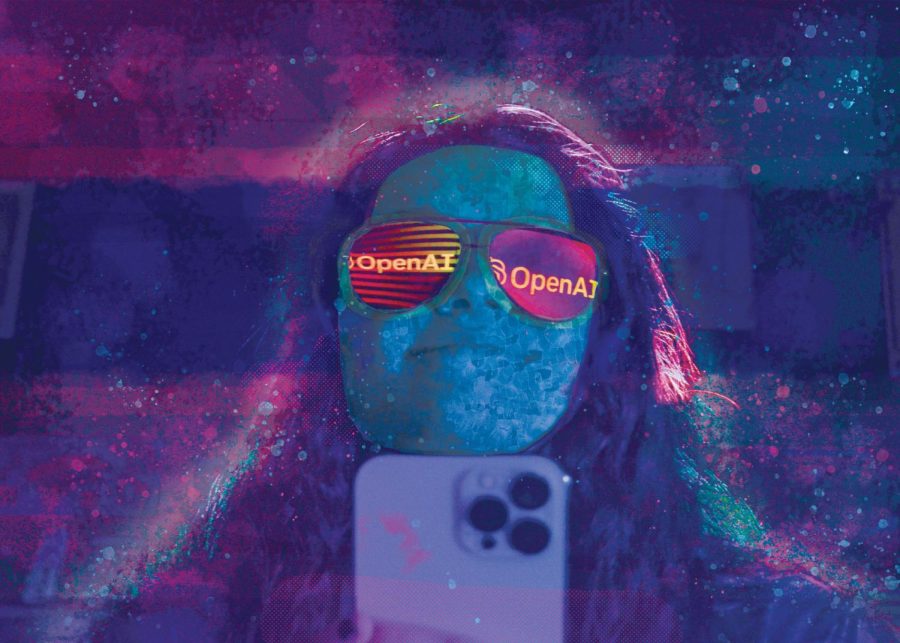AI seeps into coursework
May 1, 2023
In less than six months, ChatGPT has become a household name. The AI service can write paragraphs, essays, and speeches and fill in exams. So many people have flocked to the chatbot for a glimpse of its power that the servers have to be shut down at times. It is a tour de force of artificial intelligence.
ChatGPT was developed by OpenAI, an artificial intelligence company founded in 2015 with a mission to ensure that artificial general intelligence benefits all of society, according to OpenAI’s website.
The human-like chatbot can answer almost any question the user provides, and it has been trained to respond as a human would.
When asked about its pros and cons, ChatGPT said, “It’s important to note that while I can be a helpful tool for certain tasks, human judgment and critical thinking should always be exercised when interpreting and using the information generated by AI systems like me.”
With ChatGPT’s capabilities, it comes as no surprise students have been tempted to consult it for assistance with their assignments, especially in English courses. However, some Dallas College faculty warn students of ChatGPT’s downsides.
“A lot of people have heard of it but aren’t sure exactly what it does, or what it doesn’t do,” Marylynn Patton, Dallas College El Centro Campus ESOL curriculum chair, said. “It doesn’t do everything.”
Patton recently presented on ChatGPT at a national Teaching English to Speakers of Other Languages conference where she spoke about ways ChatGPT can be used as an educator, and how to detect whether something has been written using ChatGPT.
She said since its release in November 2022, ChatGPT has greatly improved. Where it used to score mid-range on AP exams and Bar exams, it is now scoring higher than 90%, Patton said.
One area where the AI falters is in English and literature courses. Patton said ChatGPT is scoring a two on the AP English exam, which is below college level. “[ChatGPT] is not highly qualified,” Patton said.
“In the lower-level skills like read, respond, summarize, [with] those things it can do pretty well,” Patton said. “It’s the higher level, the critical thinking, the evaluating materials, giving reactions to things. Those are the things that it cannot do.”
Dallas College does not have an official stance on ChatGPT yet, Patton said. But she urges instructors to persuade students from resorting to ChatGPT. She suggests that teachers discuss the AI chatbot with students. “Talk about the ethical side of it, how it could be used or ways that it’s being abused,” Patton said.
On the upside, ChatGPT is useful for providing formats for essays and letters, Patton said.
English professor Kendra Unruh said she is changing how she formats assignments for her students. One thing she does is have students write a rough draft in class so she has something on which to base her students’ writing. If a student turns in the final draft and their writing style veers from the rough draft, it will be obvious they did not write the essay.
Unruh has also updated her discussion board posts to directly ask students what they thought about a topic. She said she tries to make the process personal enough that an AI can not reproduce the results.
Patton related ChatGPT to a calculator. “It will be the new calculator for writing,” Patton said. “In math, you learn your basics and then after you learn your basics you can use the calculator.”



